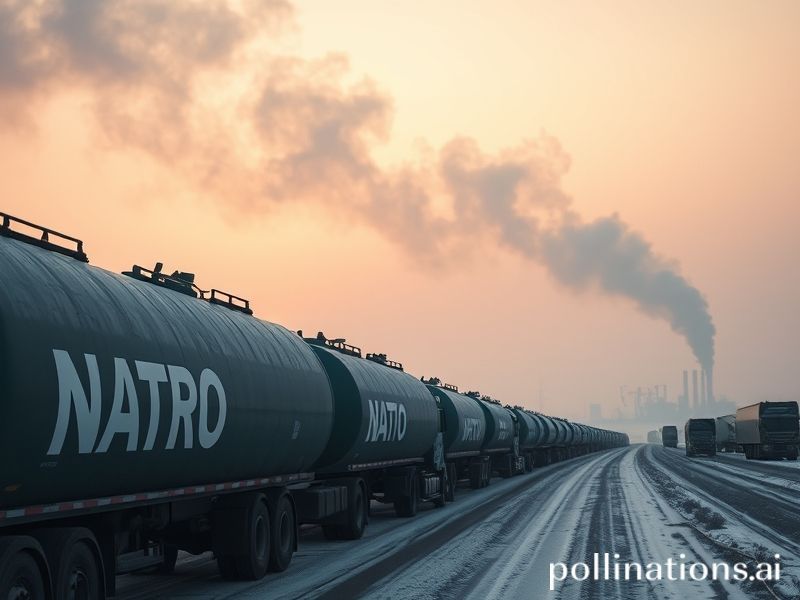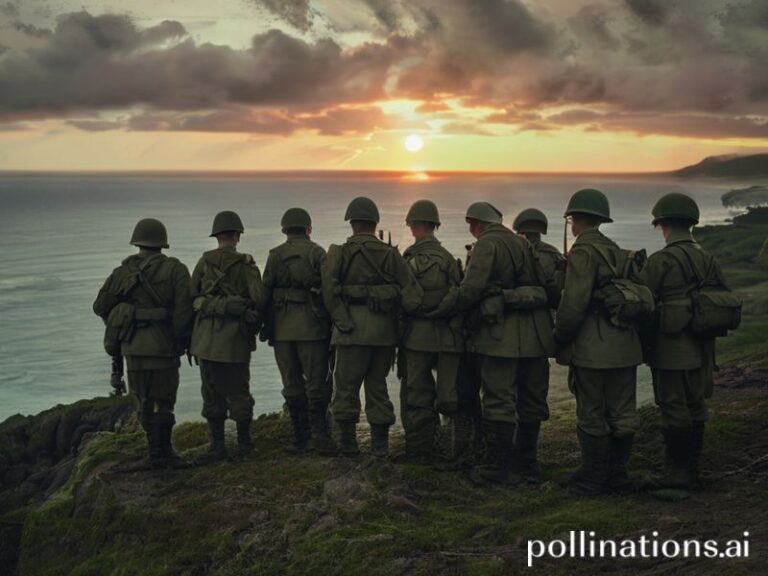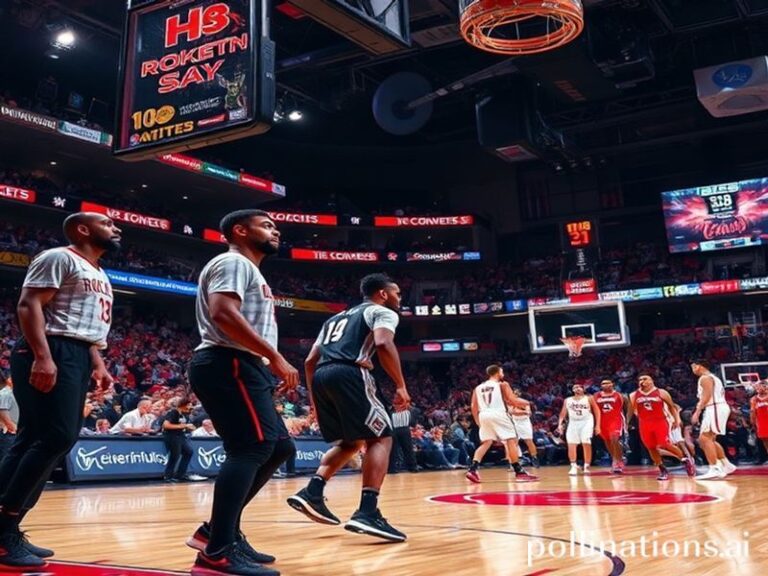NATO vs. Russian Oil: How Embargoes Became the World’s Most Expensive Shell Game
The Black Gold That Binds Us All
Brussels, Belgium – Somewhere between the smoked-glass towers of NATO headquarters and the Kremlin’s gilded halls, the same liquid flows: Russian crude. It’s the punchline nobody asked for in a joke that keeps getting darker.
When Russia invaded Ukraine, the West promised to “cut off the artery” of Putin’s war machine. Eighteen months on, the artery is more like a varicose vein—bulging, ugly, and still pulsing. Russian oil is reaching NATO members daily, just through a longer scenic route. The crude sails from Primorsk or Novorossiysk, acquires a Maltese tan, collects a Greek suntan lotion receipt, and disembarks in Rotterdam as “Turkish Blend.” Everyone winks so hard the Baltic salinity rises.
The numbers are almost poetic in their hypocrisy. The EU embargo that began in February 2023 chopped seaborne Russian crude imports by 90 percent—on paper. In practice, India bought the missing barrels at a 30 percent discount, refined them, and sold the freshly laundered diesel back to Europe at full price. European drivers now fill their tanks with moral clarity and a faint whiff of Bangalore.
Across the Atlantic, Washington congratulates itself on banning Russian energy while U.S. Treasury officials monitor the “price-cap coalition” like helicopter parents at prom. The cap—set at $60 a barrel—was meant to starve Moscow but not collapse global markets. The result: Russia’s Urals blend now trades at $55, a figure that keeps Moscow solvent enough to buy Iranian drones yet cheap enough to make OPEC wince. Capitalism, ever the contortionist, has tied itself into a profitable bowline.
China watches the spectacle with the detached amusement of a loan shark at a family reunion. Beijing’s refineries vacuum up sanctioned barrels, then ship gasoline to Latin America, which used to buy from—wait for it—American Gulf Coast refineries now short on Russian feedstock. The global oil market has become a Rubik’s Cube where every twist rearranges someone else’s morality.
Meanwhile, on NATO’s eastern flank, Polish border guards confiscate Mercedes wagons stuffed with 500-liter “agricultural heaters” that run suspiciously well on diesel. Lithuanian officials complain that their citizens—world-renowned for spontaneous yacht parties—have started buying tankers instead of yachts. The Baltic, once a quiet northern lake, now hosts a floating bazaar where every flag of convenience flaps like a surrender note written in crude.
The broader significance? We’ve discovered that hydrocarbons are the last honest diplomats. They ignore sanctions the way teenagers ignore curfews, and they unite adversaries in greasy solidarity. Turkey, a NATO member, taxes Russian oil transiting the Bosporus and simultaneously sells Moscow the very microchips it needs to keep the pumps running. France lectures on carbon neutrality while its TotalEnergies books record profits from the same molecules. And Germany, having sworn off Russian gas, now imports Russian oil products via India—because nothing says “energy transition” like a 10,000-mile detour.
Geopolitically, the farce is instructive. The West’s attempt to weaponize oil has merely weaponized complexity. Every new sanction breeds a fresher loophole, every moral stance spawns a startup in Dubai promising “origin-neutral solutions.” The Kremlin, once terrified of losing its biggest customer, now sells to a buyers’ club that includes everyone except possibly Antarctica. Revenue has dipped, but not enough to stop the war; meanwhile, the ruble’s value is propped up by sales of the very resource we swore would bankrupt it.
Human nature, ever reliable, has turned crisis into arbitrage. Singaporean traders sip single malt while booking tankers named after Greek philosophers; Greek shipowners insure them with London underwriters who lunch with MPs voting for tougher sanctions. Everyone agrees the situation is unsustainable, which is finance-speak for “profitable until the glaciers melt.”
Conclusion? The West wanted to drain Russia’s war chest and ended up refilling it with IOUs from the global middleman economy. NATO’s eastern allies now patrol borders against the same oil they once heated their homes with. And somewhere in the Arctic night, a Russian icebreaker carves a path for the next shipment, its wake glowing faintly under the Northern Lights—nature’s own sardonic spotlight on the absurdity of it all.







